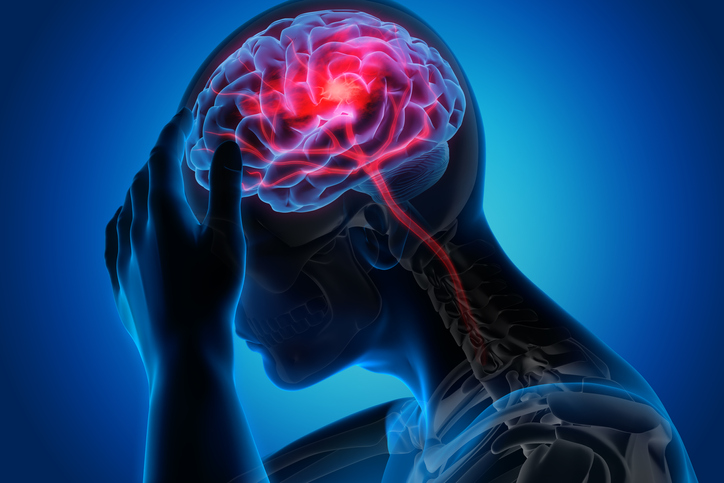
For many years now, scientists and researchers have seen a link between a person’s mind and body. The mind-body connection is how one’s physical well-being is inherently linked with their behaviours and thoughts (Menezes, 2020). This is true in the case of both physical ailments leading to strong feelings of stress and anxiety, as well as in cases of anxious and stressful emotions leading to problems like headaches and muscle pain (“Mind-Body Wellness,” 2019). Researchers have noted a consistent, inseparable connection between the mind and body. In fact, changes and dysregulation in the HPA (hypothalamic-pituitary-adrenal) axis can lead to both psychiatric disorders and more physical ones, such as cardiovascular disease (Renoir, Hasebe, & Gray, 2013).
As the connection between the mind and the body is a major part of the holistic approach to treatment, a wellness professional can help a client improve their emotional and physical well-being in ways that go beyond simply tackling their symptoms (Menezes, 2020).
Here’s what a wellness college student should know about the connection between the body and mind.
How Are the Human Mind and Body Connected?
Both the brain and the rest of a person’s body are deeply interconnected, and both neurotransmitters and hormones that affect a person’s emotions can also lead to physical changes such as in appetite, sleep, and heart rate (Menezes, 2020). The connection between the mind and body is often dependent on the types of chemicals being released within the body. More specifically, gamma globulin (a substance impacting the health of one’s immune system) and endorphins (which relieve stress and pain) are produced by the brain (“Mind-Body Wellness,” 2019). These substances aren’t able to be produced when the brain is experiencing negative thoughts (“Mind-Body Wellness,” 2019).
Consistent negative thoughts can also impede one’s ability to achieve optimal wellness (Menezes, 2020). Even if that person is told by their doctor they can easily prevent or reverse a health condition they have, their thought patterns may still cause them to think there’s nothing they can do to heal themselves (Menezes, 2020). Maintaining optimism in situations where a person is sick can make the healing process easier, based on the substances produced by the brain (“Mind-Body Wellness,” 2019). Likewise, the body releases stress hormones when one feels anxious (the fight-or-flight response), which can be detrimental for heart health and blood pressure (“Mind-Body Wellness,” 2019).

What Happens When the Body and Mind Impact One Another
Cortisol and adrenaline are the two hormones released in stressful situations (Menezes, 2020). These hormones are meant to provide a burst of energy to help the person escape from a dangerous situation, whether that danger is real or perceived (Menezes, 2020). However, excessive release of these hormones can lead to long-term issues with functions such as healing, digesting food, and the immune system (Menezes, 2020). For example, studies show that those who work in highly-stressful occupations at a low level and with little autonomy are more than twice as likely as those working in high level positions to develop metabolic syndrome, which can lead to diabetes and/or heart disease (Brower, 2006).
Other studies show that chronic feelings of stress may cause a higher risk of heart attack, and that stressful situations such as spousal arguments can cause the arteries to harden (Brower, 2006). Since physical, emotional, and mental wellness are all topics students looking to get their wellness coach diploma can expect to learn about, understanding physical symptoms related to mental and emotional thought processes becomes extremely important.
Feelings of stress have also been shown to have negative effects on white blood cell function, as well as on the ability to heal wounds and respond properly to vaccination (Littrell, 2008). Additionally, these stressful emotions make it more difficult for white blood cells to effectively respond to cancer cells, or cells infected by a virus (Littrell, 2008). It has also been found that endocrine and inflammatory pathways being negatively affected can lead to feelings of depression and other types of psychiatric issues (Renoir, Hasebe, & Gray, 2013). Moreover, disruption in the regulation of a healthy body-mind dynamic can be caused by situations as mundane as a long commute to an office, or bills arriving in the mail (“The mind-body connection”, 2018). Chronic stress can become a byproduct of these situations repeatedly happening (“The mind-body connection”, 2018). This can manifest into feelings of irritability, fatigue, sadness, headaches, and/or a lack of focus (“The mind-body connection”, 2018).
How Those With a Wellness Coach Diploma Can Help Clients
In cases where the physical effects of chronic stress have not been treated, a person can develop a higher risk of diseases such as diabetes, high blood pressure, and heart disease. (“How stress affects your body and behavior”, 2019). A professional who has graduated from wellness college can help clients in addressing issues with the connection between the body and the mind, using techniques to help them reframe their thought patterns. This helps them to develop a healthier psychological dynamic that can allow them to achieve their health objectives (Moore, 2017). One key to establishing a healthy connection between the mind and body is by maintaining a positive life outlook, as this can make it easier to cope with life’s challenges (“Mind-Body Wellness,” 2019).

A major first step in helping clients overcome a dysfunction in the mind-body connection is by making changes to their attitude and lifestyle (Moore, 2017). This can include making time for physical activity, as well as practicing feelings of gratitude instead of chronic self-criticism (Moore, 2017). A coach should also try to help clients use any changes in perspective or insights as a means of developing a healthier mind-body connection. These changes can add up over time and create a new outlook on life for the client, especially as the brain generates new neural pathways to help clients find healthier ways to overcome their internal obstacles (Moore, 2017).
The ultimate goal here is to help the client strengthen the connection between their body and mind. This can be done with various other techniques, such as meditation, mindfulness, yoga, biofeedback, and relaxation techniques such as PMR (Progressive Muscle Relaxation) (Selva, 2020). By cultivating a stronger connecting relationship between the body and mind, the wellness coach’s clients may develop stronger “body intelligence” and feel more resilient and empowered to face obstacles in life (Selva, 2020).
Looking to get your wellness coach certification?
Contact Rhodes Wellness College to find out more!
Works cited:
Brower V. (2006). Mind-body research moves towards the mainstream. EMBO reports, 7(4), 358–361. https://doi.org/10.1038/sj.embor.7400671
How stress affects your body and behavior. (2019, April 04). Retrieved from https://www.mayoclinic.org/healthy-lifestyle/stress-management/in-depth/stress-symptoms/art-20050987?pg=1
Littrell, J. (2008). The Mind-Body Connection. Social Work in Health Care, 46(4), 17-37. doi:10.1300/j010v46n04_02
Menezes, L., MD. (2020, August 24). What is the Mind-Body Connection? Retrieved from https://www.floridamedicalclinic.com/blog/what-is-the-mind-body-connection/
Mind-Body Wellness. (2019, December 16). Retrieved from https://www.healthlinkbc.ca/health-topics/mente
Moore, M. (2017, May 04). How a wellness coach changes your mind. Retrieved from https://www.cnn.com/2017/05/03/health/sw-wellness-coach
Renoir, T., Hasebe, K., & Gray, L. (2013). Mind and body: how the health of the body impacts on neuropsychiatry. Frontiers in pharmacology, 4, 158. https://doi.org/10.3389/fphar.2013.00158
Selva, J., Bc.S. (2020, October 13). Body-Mind Integration: Training Attention for Mental and Physical Health. Retrieved from https://positivepsychology.com/body-mind-integration-attention-training/
The mind-body connection. (2018, September). Retrieved from https://healthy.kaiserpermanente.org/health-wellness/mental-health/tools-resources/mind-body-wellness/what-is-connection









